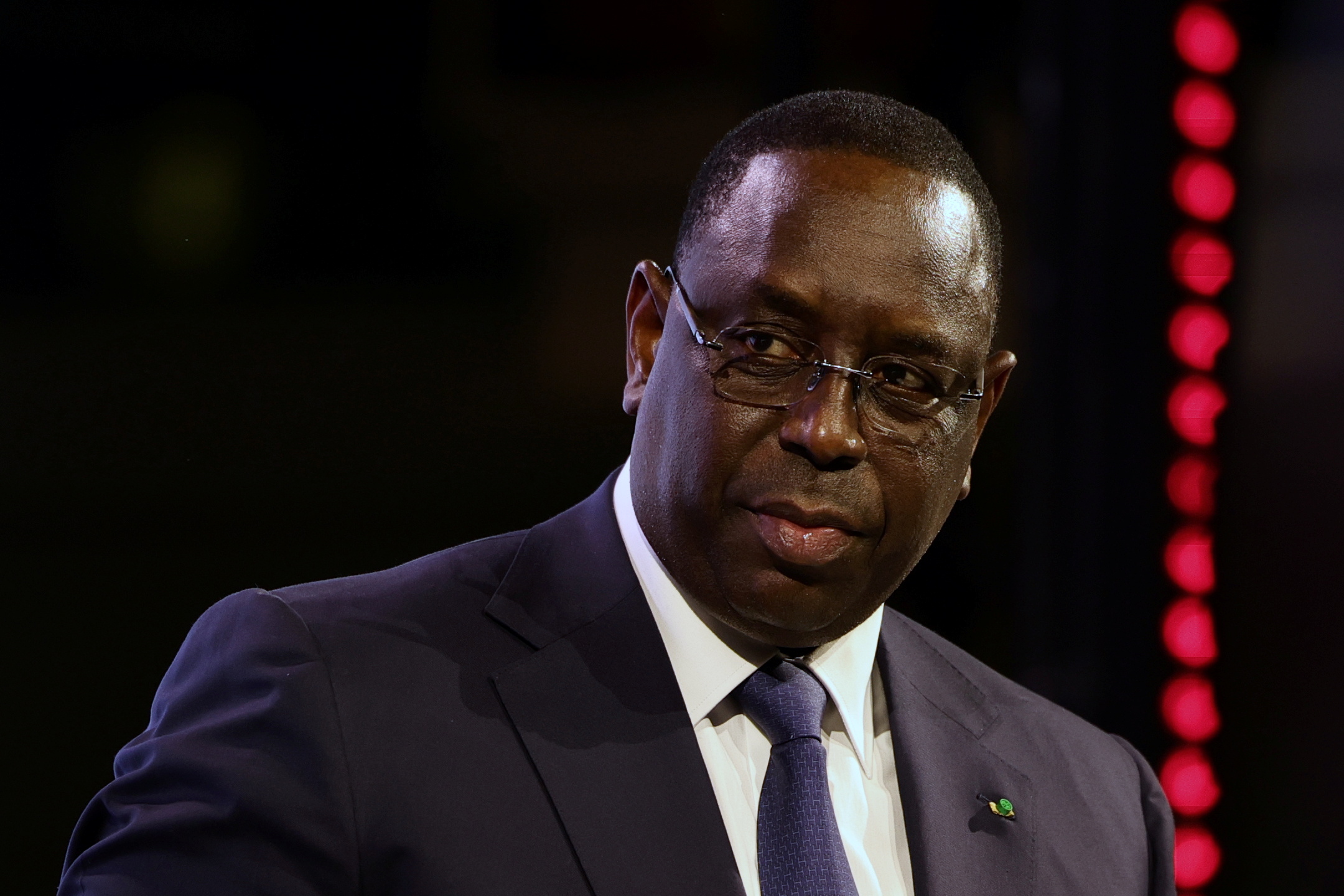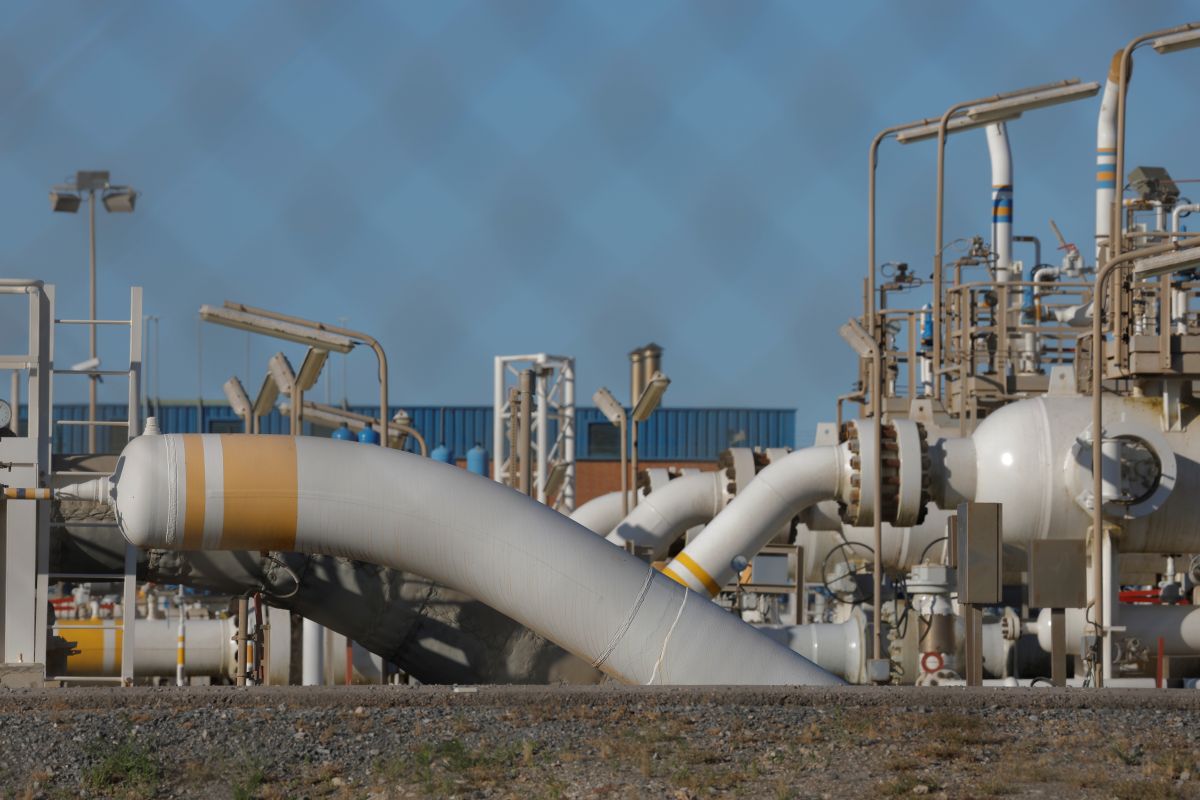Senegal Redefines International Partnerships
The new Senegalese authorities, who vowed radical reforms during the campaign, have begun a review of the state’s international relations. As part of this process, they plan, among other things, to renegotiate the fisheries agreement with the EU, expel French troops, and reform or leave the regional monetary union. Despite the revolutionary rhetoric, similar to that of the populist military regimes from the Sahel, the Senegalese approach to the economy and regional politics is rational and, in the long term, aligned with EU interests.
 Zohra Bensemra / Reuters / Forum
Zohra Bensemra / Reuters / Forum
The elections of 24 March saw new Senegalese authorities emerge to replace the administration of the increasingly authoritarian, pro-Western President Macky Sall. The new head of state is Bassirou Diomaye Faye, representing the African Patriots of Senegal for Labour, Ethics, and Fraternity (PASTEF) movement, which was outlawed before the election. Its leader is the charismatic Ousmane Sonko, whom Faye appointed as prime minister and who will effectively run most of the state’s policies. The leaders are likely to organise a constitutional referendum to sanction a move away from the presidential system. Both politicians started their careers as tax inspectors and later as anti-corruption activists. As opposition leader, Sonko accused the previous team of being too subservient to the interests of foreign partners and criticised France for undue influence, including its symbol, the West African CFA franc, a currency used in Senegal and seven other mainly Francophone countries in the region, once pegged to the French franc, now to the euro. Sonko gained popularity among young urban dwellers who believed that the means to realise their aspirations would be through the changes in economic policies and standards of governance he advocated.
PASTEF’s programme was part of the sovereigntist current that—in a more populist and undemocratic form—is also referred to by the leaders of authoritarian military juntas from the Sahel. Pro-Russian “Pan-Africanist” activists, influential especially on social media, regarded Sonko, though not uncritically, as a member of their own revolutionary “political family”. As a result, Sonko was heavily criticised in France, where media there mostly portrayed him as a dangerous radical. Undoubtedly, Senegal’s new leaders are motivated by a desire to undermine the status quo, which involved favourable conditions for foreign investment from which the host country received no tangible benefit. Instead, they will seek to increase the importance of local capital and tighten tax collection, including corporate taxes.
ECOWAS, CFA, and Junta Politics in Sonko and Faye
The most important foreign policy objective of the new Senegalese authorities will be to ease tensions in West Africa. These led Mali, Burkina Faso, and Niger to leave the structures of the West African Economic Community (ECOWAS) in January this year. Their military-origin leaders, as well as much of public opinion in the region, accused the organisation of being too submissive to the West. This manifested itself, for example, in preparations for a military intervention against the junta in Niger, under pressure from France in particular. Sonko, despite a certain ideological affinity with anti-French leaders from the Sahel (e.g., in advocating the expulsion of French troops), declared that he would seek to keep Mali, Burkina Faso, and Niger in ECOWAS rather than further weaken the organisation’s authority. Therefore, as prime minister, he declared that he would not allow the loosening of ties with military-ruled states, accused the West of being selective in condemning regimes according to interests, and expressed an understanding of the importance of the structural problems that underpinned the coups. These included the drastic deterioration of the security situation due to the expansion of jihadist groups, and the failure of civilian governments with close ties to France to mitigate the effects of the food crisis and the rising cost of living. In Africa, social unrest against this backdrop has doubled compared to the period before the COVID-19 pandemic. After the election, Sonko also softened his stance on the CFA franc. While he had previously declared himself in favour of Senegal leaving the monetary union, after the elections he stressed that he would seek reform first and only consider an exit if it failed.
Like the prime minister’s activism, President Faye’s foreign policy also indicates a shift away from the priority of strengthening relations with global players that characterised the previous team, to a focus on the region. For his inauguration, President Faye invited primarily West African leaders. States ruled by the military were represented by civilian politicians. Faye made his first foreign visit to neighbouring Mauritania, with which he shares offshore gas resources, and whose President Mohamed Ould Ghazouani holds the rotating chairmanship of the African Union. In addition to key security issues, both countries fear the consequences of a deepening crisis in neighbouring Mali, he was probably keen to persuade him to adopt a common position vis-à-vis investors (BP, Kosmos Energy) who are working to start production from the Greater Tortue Ahmeyim gas fields, one of the most promising fields in Africa, where the firms are expected to launch production in the second half of 2024. Back in 2017, Sonko published a book in which he accused Senegalese authorities and investors of “plundering” natural resources and called for a change of approach so that profits from their exploitation serve the whole of society. Faye’s subsequent visits, to The Gambia, Guinea-Bissau, Guinea, Cape Verde and Mali, confirmed the priority of good neighbourly relations.
Fisheries Dispute
One of the flagship issues raised by Faye and Sonko in the campaign was Senegal’s regaining control over food production. It has been disrupted in fisheries. In the Senegalese diet, fish and seafood provide about 40% of the protein. Meanwhile, the activities of foreign industrial fishing boats, mainly Chinese, Turkish, and European, have depleted fisheries in recent years, especially sardines. The FAO estimates that they have been overfished by 192%. This has jeopardised the livelihoods of some 600,000 Senegalese owners of traditional fishing boats, fishmongers, or those running catering establishments. Those losing their jobs in these industries often try to emigrate, for example, using fishing boats, by sea towards the Spanish Canary Islands. Upon taking over the government, Faye announced the extension of a 20 km exclusion zone for non-industrial fishing, and the implementation of a programme to restore the marine ecosystem. He also signed a charter for sustainable fishing, supported by fishing associations and Greenpeace.
For the EU, the new policy implies a review of the state of relations based on the 2020 fisheries agreement. It established the possibility for French, Portuguese, and Spanish fishing vessels and European freezer seiners to catch up to 10,000 tonnes of tuna per year, in exchange for €3 million. The agreement, which has become emblematic of the local fisheries crisis, has been criticised, for example, for the lack of mechanisms to control the volumes of fish exported, which are standard in similar agreements implemented in other parts of the world. The new Senegalese authorities announced that a new agreement will be worked out by November this year, taking into account the interests of local fishermen.
In the case of Chinese as well as Spanish boats, the subject of dispute is the activities of ships operating under unclear agreements under the Senegalese flag (the nominal partners of the registered companies are Senegalese nationals). They have been fishing extensively, for example, to supply the production of feed for Chinese fish farms. In May this year, the authorities published the results of an audit through which they identified 46 such vessels. It is likely that they will seek to re-register them on a basis that guarantees control or have their licences revoked.
Conclusions and Outlook
Although fears of Sonko coming to power, motivated by his alleged radicalism, have been prevalent in the West, especially in France, his proposed programme is likely to be implemented in a watered-down form that takes reality into account. Some of the changes that Faye and Sonko will introduce, for example, on fisheries, will harm the EU’s interests in the short term. However, in the long term and in a regional context, their success will be to its advantage. This is especially true in terms of increasing Senegal’s economic self-reliance and profit-sharing from natural resource exploitation, which will reduce the drivers of irregular migration. The fact that Faye reported after the talks in Mali that the approach to ECOWAS there was “not entirely inflexible” demonstrates some influence of the Senegalese authorities on the strongly anti-Western juntas. The EU should see this as an opportunity, for example, to dissuade them from their most confrontational, Russia-friendly moves. It would therefore be advisable to work out an understanding with Senegal on common goals in the region.





.jpg)